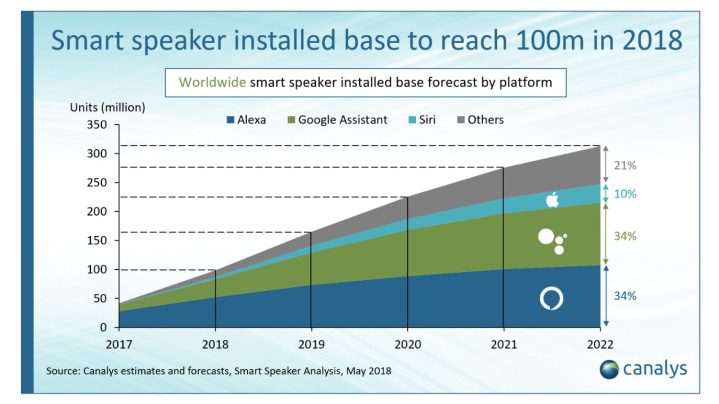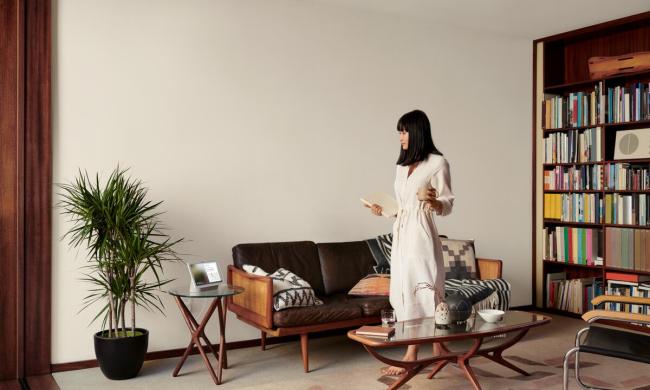
Smart home speakers are only gaining in popularity, and it’s easy to see why. The pod-like devices are not only offering their customers a great sound system, but have quickly become the center of many households, with folks depending upon their built-in smart assistants (be they Amazon Alexa or Google Assistant) to help with household chores, reminders, or a weather forecast. But even as American interest in these speakers grows, it would appear that one company is being left behind. Canalys recently published new data about the burgeoning smart speaker market, and revealed that Apple’s HomePod, once a highly anticipated competitor to the Google Home and Amazon Echo lines, isn’t catching on quite the way Apple hoped.
By the end of 2018, the research firm believes that there will be nearly 100 million smart speakers in households around the world. That represents an impressive increase of about 150 percent when compared to last year, and much of this growth is attributed to Amazon and Google. The Echo devices are expected to maintain an impressive market share of around 50 percent, while Google Homes will make up around 30 percent of all smart speakers by the end of 2018.
Far behind, however, is Apple and its HomePod, which is projected to corner just four percent of the global smart speaker market in 2018. And when extending projections further, Canalys does not appear terribly optimistic about Apple’s growth in this industry. By 2022, the HomePod is only expected to claim around 10 percent of the market share. While that’s better than its current standing, it’s still not a match for the other players in the market.
On the other hand, it would appear that Google will soon be catching up to Amazon with its Home speakers. In four years time, Canalys projects that the two companies will each take 34 percent of the market, meaning that Amazon is predicted to lose some ground to Google. Additionally, as other players begin to enter the smart speaker game, it’s likely that they too will be able to grab customers away from the more established folks in the space.
All in all, it would seem that Apple has its work cut out if it wants to remain competitive with the HomePod. Perhaps a lower-priced version of the smart speaker will help.


